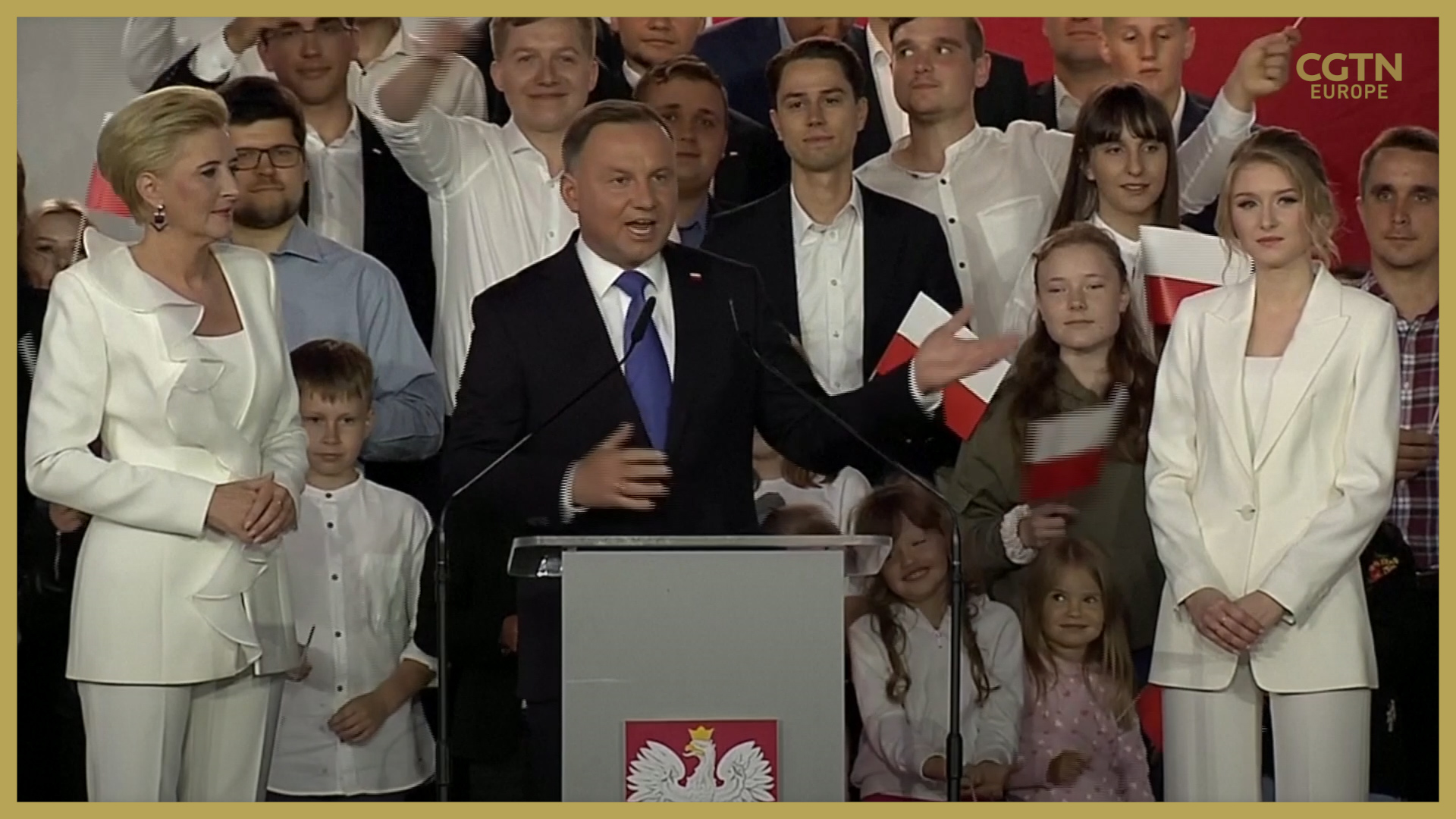02:15

Poland's conservative president Andrzej Duda has won another term in power after the second round of results in the presidential elections were revealed on Monday.
The election race between Duda and his more liberal opponent, the mayor of Warsaw, Rafal Trzaskowski, was one of the tightest in the country's recent history.
The early exit polls gave a marginal edge to Duda by less than one percent. But on Monday, with most votes counted, the lead became more evident, with Duda winning by 51 percent to 49 percent – getting half a million votes more than Trzaskowski.
It was almost the same five years ago, at the previous presidential election
- Poland's Deputy PM, Jadwiga Emilewicz, says the country has a longstanding political divide.
The election race has galvanized this politically divided nation, resulting in a near record-breaking turnout of 68.12 percent – the 1995 elections had a marginally higher turnout of 68.23 percent.
The reasons behind the turnout are the very different platforms and values the two candidates have and offer to the Polish voters. The pair differ greatly on issues such as LGBT community rights, EU migrants quotas and abortion but there are other less obvious areas of division.
This election had centered on the country's future relationship with the European Union as well as social issues and questions about the future of governance and whether policies should be made centrally or more locally.
Geographically, the country is split on those issues. The east and south of the country generally supported president Duda's conservative approach, while the north and the west, favoured the liberal Trzaskowski.

Warsaw Mayor Rafal Trzaskowski greeting supporters as votes were counted. /AFP
Warsaw Mayor Rafal Trzaskowski greeting supporters as votes were counted. /AFP
The same division was observed between urban and rural areas, where people from small towns and villages supported Duda and big cities Trzaskowski.
Poland's deputy prime minister, Jadwiga Emilewicz, says those divisions are nothing new.
"It was almost the same five years ago, at the previous presidential election. It was almost the same last year, when we selected representatives to parliament. So, this is simply an improvement in the practice of sharing in Polish society," Emilewicz said.
On Sunday evening, President Duda invited Trzaskowski to meet at the presidential palace before the results were known. It was a public attempt to extend the hand of reconciliation to his opponent.
One of his biggest tasks in the next five years will be to reconcile this deeply divided nation.
Source(s): AP
,AFP